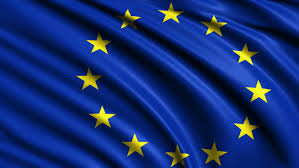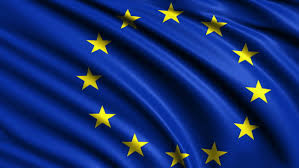
European Union leaders gave themselves two more weeks to work out details for providing support for their economies that have been hit by hard by the coronavirus pandemic as the leaders could not come to an agreement on Thursday about how much should the support amount be. The dispute about the stimulus package is between the south European countries such as Spain and Italy that have been hit hard and the northern countries like Germany that are averse to increase the fiscal deficit too much.
A proposal of issuing joint debt to help finance a recovery proposed by Italy, Spain and France was blocked by Germany and the Netherlands which shows the extent to which the pandemic is testing the bloc's cohesion.
The issue of setting up a credit line worth about 2 per cent of the total economic output from the European Stability Mechanism (ESM) bailout fund of the 19-member euro zone was the sticking point in the six-hour video-conference meeting between all of the 27 national leaders of the European Union.
Unable to come to an agreement, the leaders left the task of working out the details in the next two weeks to the finance ministers of the member countries.
"Some member states ... suggested those corona bonds," German Chancellor Angela Merkel said after the discussion ended. "We said that this is not the point of view of all member states. And that's why the ESM is the preferred instrument for me."
The ESM would be the "last resort", said Dutch Prime Minister Mark Rutte, and reiterated that even that happens it should come with conditions and that The Hague would not back joint debt.
Euro-zone governments could be given access to the standby credit of the ESM for up to two years, the ESM said, and added that the governments would have to repay it within an average period of five to 10 years.
The push for virtually unlimited support for itself was led by Italy, the country that has been the hardest hit by the coronavirus pandemic in Europe. "We need to react with innovative financial instruments," Italian Prime Minister Giuseppe Conte's office said in a statement.
There has been a lack of unity and agreement within the EU on a stimulus package to support the economies hit by the coronavirus since the pandemic reached the shores of Europe after having emerged in China in late December last year. EU member states have also struggled to agree on sharing of medical equipment and safeguarding of essential supplies following many of the countries in the continent either closed down or tightened the otherwise open borders in an effort to prevent or to slowdown the spread of the pandemic.
A new "Marshall Plan" – the name given to resemble the US aid package that kick-started Western Europe's recovery after World War II, was called for by European Council President Charles Michel, who chaired the summit.
However there was division among the leaders of the 27 member states as Germany and the Netherlands arguing that the coronavirus crisis could get extended till May and therefore the EU should hold back some of the tools so that they can be used later.
"We cannot repeat the mistakes of the 2008 financial crisis, which sowed the seeds of disaffection and division with the European project and provoked the rise of populism. We need to learn this lesson," said Spanish Prime Minister Pedro Sanchez.
(Source:www.channelnewsasia.com)
A proposal of issuing joint debt to help finance a recovery proposed by Italy, Spain and France was blocked by Germany and the Netherlands which shows the extent to which the pandemic is testing the bloc's cohesion.
The issue of setting up a credit line worth about 2 per cent of the total economic output from the European Stability Mechanism (ESM) bailout fund of the 19-member euro zone was the sticking point in the six-hour video-conference meeting between all of the 27 national leaders of the European Union.
Unable to come to an agreement, the leaders left the task of working out the details in the next two weeks to the finance ministers of the member countries.
"Some member states ... suggested those corona bonds," German Chancellor Angela Merkel said after the discussion ended. "We said that this is not the point of view of all member states. And that's why the ESM is the preferred instrument for me."
The ESM would be the "last resort", said Dutch Prime Minister Mark Rutte, and reiterated that even that happens it should come with conditions and that The Hague would not back joint debt.
Euro-zone governments could be given access to the standby credit of the ESM for up to two years, the ESM said, and added that the governments would have to repay it within an average period of five to 10 years.
The push for virtually unlimited support for itself was led by Italy, the country that has been the hardest hit by the coronavirus pandemic in Europe. "We need to react with innovative financial instruments," Italian Prime Minister Giuseppe Conte's office said in a statement.
There has been a lack of unity and agreement within the EU on a stimulus package to support the economies hit by the coronavirus since the pandemic reached the shores of Europe after having emerged in China in late December last year. EU member states have also struggled to agree on sharing of medical equipment and safeguarding of essential supplies following many of the countries in the continent either closed down or tightened the otherwise open borders in an effort to prevent or to slowdown the spread of the pandemic.
A new "Marshall Plan" – the name given to resemble the US aid package that kick-started Western Europe's recovery after World War II, was called for by European Council President Charles Michel, who chaired the summit.
However there was division among the leaders of the 27 member states as Germany and the Netherlands arguing that the coronavirus crisis could get extended till May and therefore the EU should hold back some of the tools so that they can be used later.
"We cannot repeat the mistakes of the 2008 financial crisis, which sowed the seeds of disaffection and division with the European project and provoked the rise of populism. We need to learn this lesson," said Spanish Prime Minister Pedro Sanchez.
(Source:www.channelnewsasia.com)





